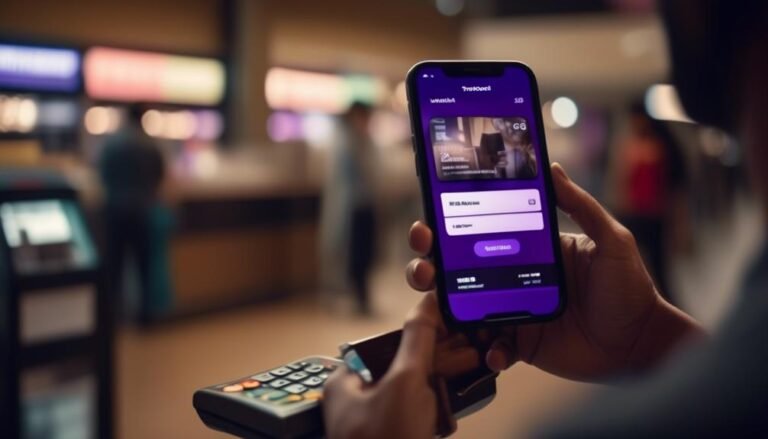Unilever: Adapting to the Future of Work Case Study
In an era of rapid technological advancements and evolving workforce dynamics, organizations are continually challenged to adapt and innovate in order to remain competitive.
Unilever, a global consumer goods company, has been at the forefront of this transformation, navigating the complexities of the future of work with strategic foresight and agility.
As we explore Unilever's case study, we delve into the intricacies of their digital transformation journey, remote work strategies, employee well-being initiatives, and the integration of technology in the modern workplace.
This comprehensive analysis not only offers insights into the company's adaptability and resilience but also provides valuable lessons for organizations seeking to thrive in the ever-changing landscape of work.
Unilever's Digital Transformation Journey
Unilever's digital transformation journey has been a strategic endeavor aimed at leveraging technology to enhance operational efficiency, customer engagement, and overall business performance. A critical aspect of this journey has been the development and enhancement of digital skills across the organization.
Unilever recognized that to successfully navigate the digital landscape, its workforce needed to be equipped with the right skills to harness the power of technology. This realization prompted the initiation of comprehensive digital upskilling programs designed to empower employees at all levels with the necessary digital capabilities.
In tandem with the focus on digital skills, Unilever also prioritized change management to ensure a smooth transition into the digital era. Change management strategies were deployed to proactively address any potential resistance to the adoption of new technologies and ways of working. This included transparent communication, leadership alignment, and fostering a culture that embraces innovation and continuous improvement.
Remote Work Strategies
As businesses navigate the shift towards remote work, it is crucial to address the challenges that come with it, such as maintaining effective communication and ensuring productivity and accountability.
Implementing the right communication tools is essential to facilitate seamless collaboration and information sharing among remote teams.
Additionally, establishing clear expectations and metrics for accountability can help maintain performance standards in a remote work environment.
Remote Work Challenges
Navigating the transition to remote work presents a myriad of challenges, requiring strategic and innovative solutions to ensure productivity and collaboration within the organization.
Challenges:
- Maintaining team cohesion and morale
- Overcoming communication barriers
- Balancing work and personal life
- Ensuring data security
- Managing performance and accountability
To address these challenges, organizations must prioritize flexibility, embracing technology to facilitate seamless communication and collaboration. Implementing clear productivity metrics and establishing regular check-ins can help maintain accountability and ensure deliverables are met.
Additionally, providing resources for mental health support and fostering a culture of trust and autonomy can help employees navigate the blurred boundaries between work and personal life.
Ultimately, successful remote work strategies require a balance of structure and flexibility, empowering employees to thrive in the virtual workspace.
Communication Tools
Implementing effective communication tools is essential for optimizing remote work strategies and fostering seamless collaboration within the organization.
Unilever has recognized the significance of virtual meetings and online collaboration platforms in maintaining productive interactions among remote teams. By leveraging virtual meeting tools such as Zoom, Microsoft Teams, and Google Meet, Unilever ensures that employees can engage in real-time discussions, share updates, and brainstorm ideas irrespective of their physical locations.
Additionally, the use of online collaboration platforms like Slack and Asana enables employees to work together efficiently, share documents, and track project progress seamlessly.
These communication tools not only facilitate regular and structured communication but also contribute to maintaining a sense of unity and teamwork within the remote workforce, ultimately enhancing productivity and driving the organization towards its strategic goals.
Productivity and Accountability
Amid the shift towards remote work, Unilever has strategically focused on enhancing productivity and accountability through targeted remote work strategies. The following measures have been instrumental in achieving this goal:
- Implementation of advanced productivity tools to streamline workflows and facilitate seamless collaboration.
- Regular performance assessments and goal-setting to ensure accountability and maintain high standards of work.
- Clear communication of expectations and deliverables to all remote employees.
- Encouraging self-discipline and time management through training and resources.
- Leveraging technology for real-time monitoring and feedback mechanisms to track progress and address any potential issues promptly.
These initiatives have not only optimized productivity but also bolstered accountability within Unilever's remote work framework, ensuring that employees remain aligned with the company's objectives.
Employee Well-being Initiatives
Unilever's commitment to employee well-being is evident in its comprehensive initiatives aimed at fostering a healthy and supportive work environment. The company prioritizes employee engagement through various programs and activities that promote a sense of belonging and fulfillment.
Unilever understands that a mentally healthy workforce is crucial for overall productivity and success. Therefore, the organization has implemented robust mental health support systems, including counseling services, mental health awareness campaigns, and training for managers to recognize and address mental health challenges in the workplace.
In addition to mental health support, Unilever has developed initiatives focused on promoting physical health and work-life balance. These include flexible working arrangements, access to fitness facilities, and wellness programs that encourage healthy lifestyle choices.
The company also emphasizes the importance of creating a supportive and inclusive work culture by providing resources for diversity and inclusion, as well as avenues for social connection and community involvement.
Agile Workforce Development
Building on its commitment to employee well-being, Unilever strategically focuses on agile workforce development to effectively navigate the evolving landscape of work dynamics and skills demand. The company has implemented the following strategies to enhance agile workforce development:
- Agile Training Programs: Unilever invests in continuous learning and development programs to equip its workforce with the skills needed to adapt to rapidly changing market demands.
- Cross-functional Collaboration: Encouraging collaboration across different departments and teams fosters a flexible workforce capable of seamlessly adjusting to new challenges and opportunities.
- Flexible Work Arrangements: Embracing remote work, flexible hours, and alternative work structures enables employees to achieve a better work-life balance while enhancing productivity and adaptability.
- Dynamic Skill Set Development: Unilever emphasizes the importance of cultivating a diverse skill set within its workforce to ensure versatility and resilience in the face of evolving industry requirements.
- Agile Leadership Development: Developing agile leadership skills throughout the organization ensures that leaders can effectively guide teams through periods of change and ambiguity.
Flexibility and Adaptability
With the ever-changing landscape of the modern workplace, cultivating flexibility and adaptability among employees has become a pivotal focus for Unilever's workforce development strategy.
Unilever recognizes the importance of flexible work arrangements in empowering employees to achieve a work-life balance while optimizing productivity. The implementation of flexible work arrangements, such as remote work options and flexible hours, allows employees to tailor their work schedules to suit their individual needs, ultimately fostering a more motivated and engaged workforce.
Additionally, Unilever has integrated adaptive leadership strategies to navigate the complexities of a rapidly evolving business environment. Leaders are encouraged to embrace change, think critically, and swiftly adapt to new circumstances, setting a precedent for the rest of the organization. This approach not only enhances organizational agility but also empowers employees to embrace change with confidence.
Collaboration in the Digital Age
In today's digital age, remote teamwork presents unique challenges that require innovative solutions.
Virtual communication tools have become essential in bridging the gap between team members separated by physical distance.
Additionally, agile project management methodologies have proven to be crucial in ensuring seamless collaboration and adaptability in fast-paced, dynamic work environments.
Remote Teamwork Challenges
Amid the shift towards remote work, organizations are facing unprecedented challenges in fostering effective collaboration among geographically dispersed teams in the digital age.
The following are key challenges in remote teamwork:
- Communication barriers: Difficulty in conveying non-verbal cues and tone over virtual platforms.
- Time zone differences: Scheduling meetings and coordinating work across different time zones.
- Building trust and rapport: Establishing strong interpersonal connections and team cohesion in a virtual environment.
- Managing virtual conflicts: Addressing and resolving conflicts that arise in the absence of face-to-face interactions.
- Technology limitations: Overcoming technical issues and ensuring all team members have access to necessary tools and resources.
Successfully navigating these challenges requires a deep understanding of remote team dynamics and the implementation of tailored strategies for effective virtual team collaboration.
Virtual Communication Tools
Organizations navigating the challenges of remote teamwork in the digital age are increasingly relying on virtual communication tools to facilitate collaboration and maintain productivity.
Virtual collaboration platforms such as Microsoft Teams, Slack, and Zoom have become essential for remote engagement, enabling real-time communication, file sharing, and project management. These tools offer features like video conferencing, instant messaging, and document collaboration, fostering seamless interaction among geographically dispersed teams.
The use of virtual communication tools also allows for better transparency and accountability, as team members can easily track project progress and provide timely feedback. Moreover, these platforms support the integration of various digital applications, streamlining workflow and enhancing overall efficiency.
As organizations continue to adapt to the evolving landscape of work, leveraging virtual communication tools is paramount for sustained productivity and effective collaboration in the digital age.
Agile Project Management
The increasing reliance on virtual communication tools has prompted a shift towards agile project management methodologies, reflecting the evolving landscape of collaborative work in the digital age. Adapting processes and embracing agile methodologies have become imperative for organizations aiming to thrive in this dynamic environment.
Here are key aspects to consider:
- Continuous Iteration: Agile project management allows for ongoing refinement and improvement, enabling teams to adapt to changing requirements swiftly.
- Cross-Functional Collaboration: Agile methodologies foster seamless collaboration among diverse teams, promoting a holistic approach to project execution.
- Customer-Centric Focus: By prioritizing customer feedback and involvement throughout the project lifecycle, agile methods ensure the delivery of valuable solutions.
- Flexibility and Adaptability: Agile project management empowers teams to respond effectively to unforeseen challenges and market shifts.
- Transparency and Accountability: Agile frameworks promote transparency, enabling stakeholders to track progress and make data-driven decisions.
Technology Integration
Incorporating advanced technology into the operational framework is essential for Unilever to remain competitive and efficient in the rapidly evolving global marketplace. Technology integration plays a pivotal role in enhancing productivity, fostering innovation, and adapting to the future skills required in the workplace. Unilever embraces technology integration as a strategic imperative to streamline processes, optimize resource allocation, and leverage data-driven insights for informed decision-making.
As Unilever navigates the complexities of the modern business landscape, the integration of cutting-edge technologies such as artificial intelligence, machine learning, and automation facilitates the augmentation of human capabilities, leading to more efficient and effective operations. Moreover, the strategic deployment of technology aligns with Unilever's commitment to fostering future skills among its workforce. By leveraging digital tools and platforms, Unilever empowers its employees to develop the necessary competencies to thrive in a digitally-driven environment.
Furthermore, technology integration not only accelerates operational efficiency but also enables Unilever to proactively adapt to evolving market demands and consumer preferences. By harnessing the power of technology, Unilever can strengthen its competitive positioning and drive sustainable growth in an increasingly dynamic and interconnected global economy.
Resilience in the Modern Workplace
Amid the ever-changing landscape shaped by technology integration, fostering resilience in the modern workplace has become a critical imperative for Unilever to navigate the complexities of the contemporary business environment. As the organization embraces the future of work, it is essential to prioritize resilience to ensure the well-being and productivity of its employees.
Key focus areas include:
- Resilience Training: Providing employees with the necessary tools and resources to develop resilience, cope with stress, and adapt to change.
- Remote Leadership: Equipping leaders with the skills to effectively manage and support remote teams, fostering a resilient and cohesive workforce regardless of physical location.
- Mental Health Support: Implementing programs and initiatives that prioritize mental well-being and provide support for employees facing challenges.
- Flexible Work Arrangements: Embracing flexible work models to accommodate individual needs and promote a healthy work-life balance, contributing to overall resilience.
- Communication Strategies: Establishing clear and transparent communication channels to keep employees informed, connected, and engaged, fostering a sense of resilience and unity within the organization.
Lessons for Future Work Success
As Unilever strategically positions itself for the future of work, it is imperative to extract valuable lessons that will pave the way for sustainable and adaptable success. By analyzing Unilever's approach, several key lessons can be learned to shape future strategies and ensure success in an ever-evolving work environment.
| Lessons Learned | Future Strategies | Success Factors |
|---|---|---|
| Embracing Technology | Flexibility in Operations | Employee Well-being |
| Agility in Decision-making | Remote Work Optimization | Innovation Culture |
| Continuous Learning | Collaboration Tools | Diverse Talent Pool |
One of the critical lessons is the importance of embracing technology to enhance productivity and efficiency. Unilever's adaptability in integrating new technologies into their operations has been a significant success factor. Furthermore, the ability to make agile decisions in response to changing market dynamics has proven to be essential for sustainable growth. Additionally, Unilever's commitment to continuous learning and fostering an innovation culture has contributed to its success. Looking ahead, prioritizing employee well-being, optimizing remote work capabilities, and cultivating a diverse talent pool will be crucial for future work success. These lessons can serve as a guide for organizations seeking to thrive in the evolving landscape of work.
Conclusion
In conclusion, Unilever's successful adaptation to the future of work demonstrates the importance of:
- Digital transformation
- Remote work strategies
- Employee well-being initiatives
- Agile workforce development
- Flexibility
- Collaboration in the digital age
- Technology integration
- Resilience in the modern workplace
The company's approach serves as a valuable example for organizations seeking to navigate the evolving landscape of work. It emphasizes the need for strategic and adaptable approaches to succeed in the future of work.






